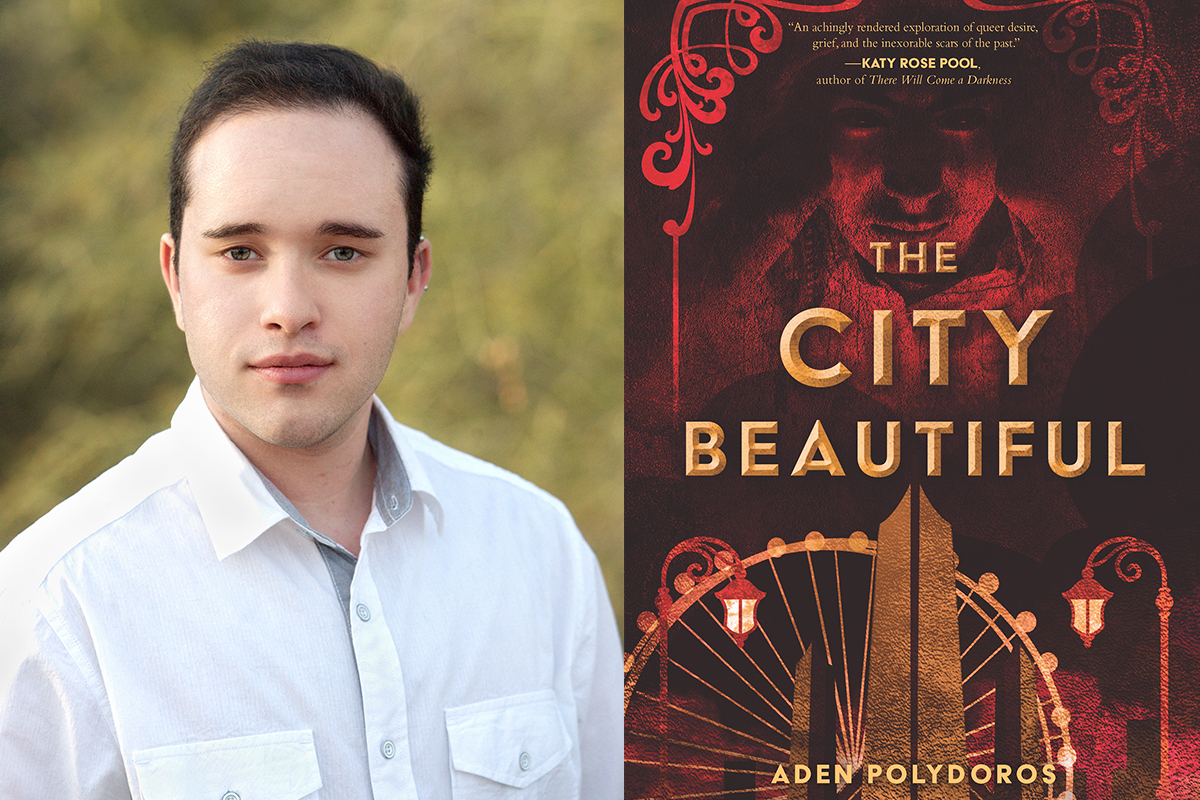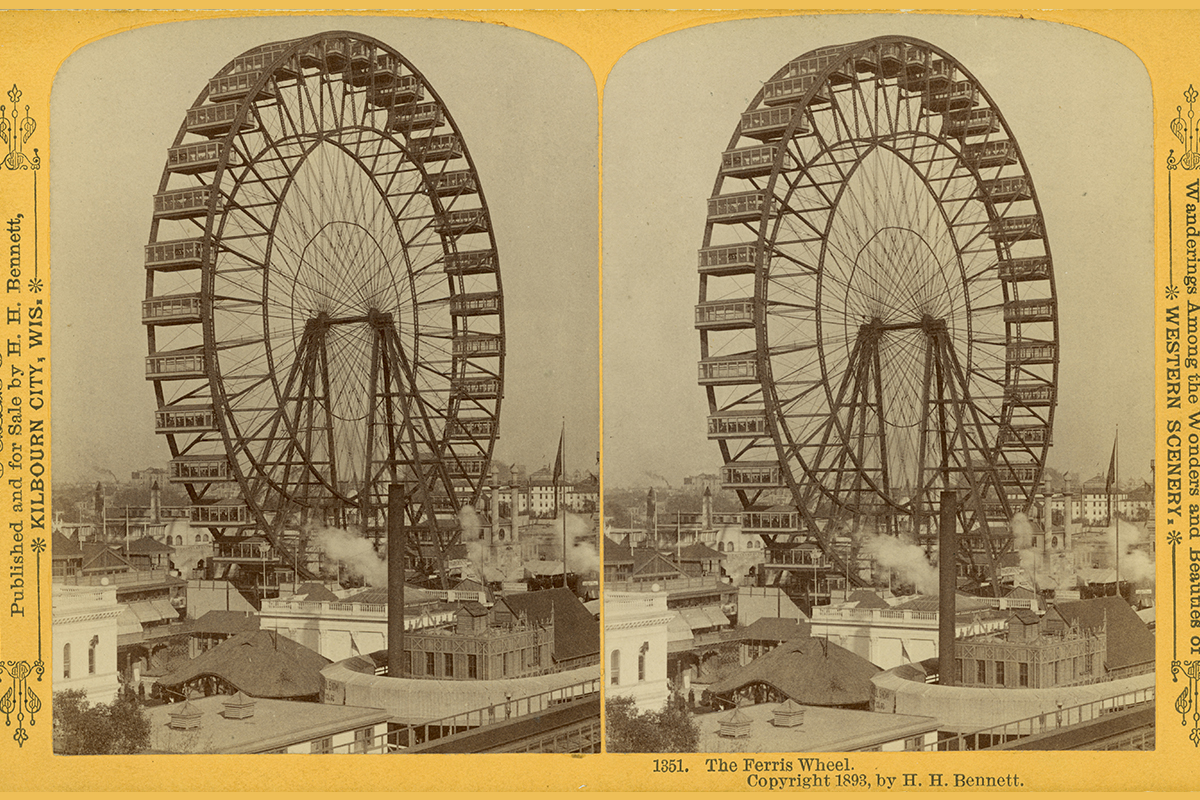Aden Polydoros wants to write the Jewish stories he wishes he had growing up. With his new novel, “The City Beautiful,” he is part of a wave of new young adult writers creating diverse, compelling and nuanced Jewish characters. In the fantasy novel set in 1893 Chicago, Alter Rosen is an observant young Jew saving up to bring his family over from Romania. When his roommate, Yakov, dies under mysterious circumstances, Alter sets out to find why young Jewish men are disappearing from the city.
The book touches on themes of Jewish assimilation, antisemitism and the push and pull between modernity and tradition — all while keeping you absorbed in a fast-moving plot that centers on a dybbuk, a mystical Jewish demon. Over e-mail, I chatted with Aden about his novel and how real-world antisemitic events inspired his Jewish historical fantasy.

What inspired you to write “The City Beautiful”?
The idea was sparked by an article I read about H.H. Holmes, a serial killer active in Chicago during the 1893 World’s Fair. I found it intriguing that his killings were performed against the backdrop of the World’s Fair, which was supposed to cast America (and Chicago) in the best light. At first, I thought about writing a mystery about an immigrant who arrives in Chicago in search of his missing sister, but then I decided not to write about H.H. Holmes and create my own killer whose motives are still very much rooted in that time and place.
In your author’s note, you write about modern antisemitism you’ve encountered — how did the events of the recent years impact your story?
I would say that they had a profound impact on my decision to write this story. Before starting “The City Beautiful,” I was afraid of writing a Jewish protagonist, particularly a queer Jewish one, because I feared that publishers would consider the book too niche. But seeing the rise in antisemitism made me realize how important it is to have Jewish characters in genre fiction, in books that aren’t about the Holocaust. And it’s just as important to have characters with intersectional identities.
Alter is struggling with his queerness and holding on to his Jewishness in a new world — can you talk more about writing a gay Jewish protagonist in the early 1890s?
It was definitely a challenge writing a gay Jewish protagonist set during that time period, because I had to filter all his perceptions through both his upbringing and religion, as well as the Victorian era’s views on same-sex attraction. Back then, he wouldn’t have shared our contemporary definition of homosexuality. This affected how I had Alter view his own sexuality, and the way he describes it.
Tell me about your research process, especially with regards to Jewish life at the turn of the century. Where did you turn to learn more?
This story involved a significant amount of research into Jewish life during the 1890s, because the plot itself is heavily rooted in events that occurred during that time. I research my novels as I draft them, so once I had a timeline and groundwork built, it was just a matter of adding research to flesh out the world and fill in details. The first research I did was on the tahara process [preparing a body for burial] and the role of burial societies, since in the original first draft, it began with the scene of Alter participating in the tahara process.
What does Jewishness mean to you in 2021?
Growing up, I struggled with feeling Jewish, because I come from a very secular interfaith family. Sometimes I didn’t feel Jewish enough, and other times (mainly with peers), I felt too Jewish. Jewishness in 2021, to me, means embracing the diversity of what it means to be Jewish, and celebrating the different views and experiences that we can all bring to the community.
What does it mean to you to be a Jewish author?
I’ve decided that I want to continue focusing on Jewish stories, and that in doing so, I can help give Jewish teens the kinds of books that I didn’t have growing up. So, for me, being a Jewish author means doing just that. I’m currently working on a few other novels with Jewish main characters, including a middle grade novel coming out in 2023.
Jewish historical fantasy is not a genre I come across often — and I cover Jewish books! — so if I wanted to keep reading, where do you recommend I start?
Some great Jewish historical fantasy novels I’ve read (or that I’m looking forward to reading) are “The Sisters of the Winter Woods” by Rena Rossner, “The Ghosts of Rose Hill” by R.M. Romero, “A Far Wilder Magic” by Allison Saft and “From Dust, A Flame” by Rebecca Podos.
What is your favorite Jewish folktale?
Definitely the golem. I find the concept so fascinating, and although I love dybbukim as well, there is just something intriguing about golems. I am actually working on a novel about a golem, which I hope to eventually see published one day.
What do you hope readers, especially Jewish readers, take away from your novel?
I hope that it will shed some light on Jewish history. Many readers may not be aware that antisemitism did not begin with the Holocaust, and I am hoping that with this novel’s description of antisemitism in Imperial Russia, it might lead to readers researching the history further. For Jewish readers in particular, I am hoping that this book will allow them to read about a protagonist who is not simply a passive victim, as seems to be the case in the Holocaust novels I grew up reading — which were essentially my only exposure to novels with Jewish main characters.



